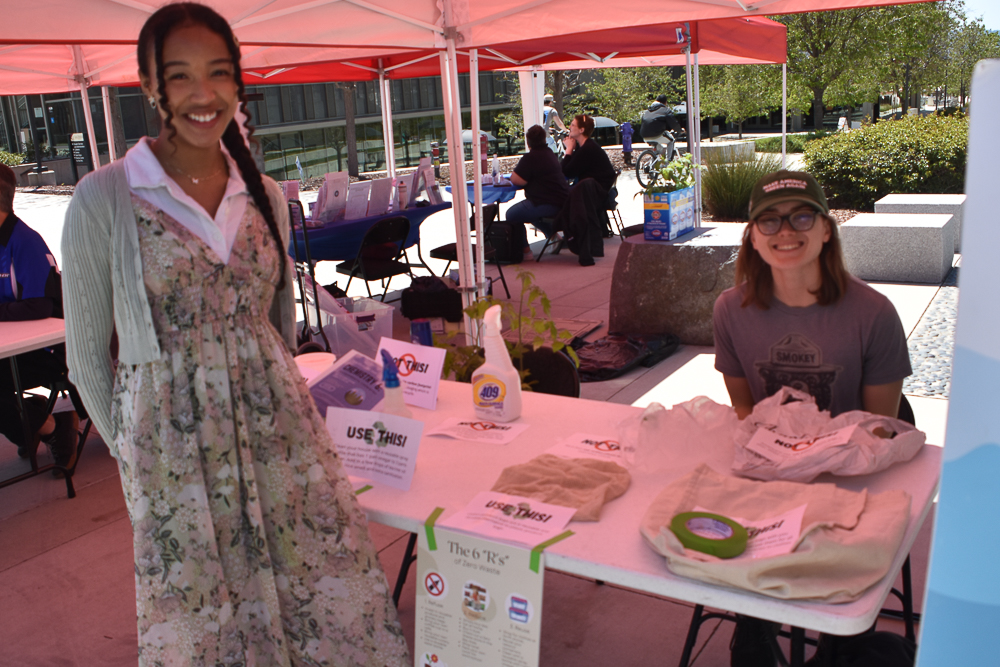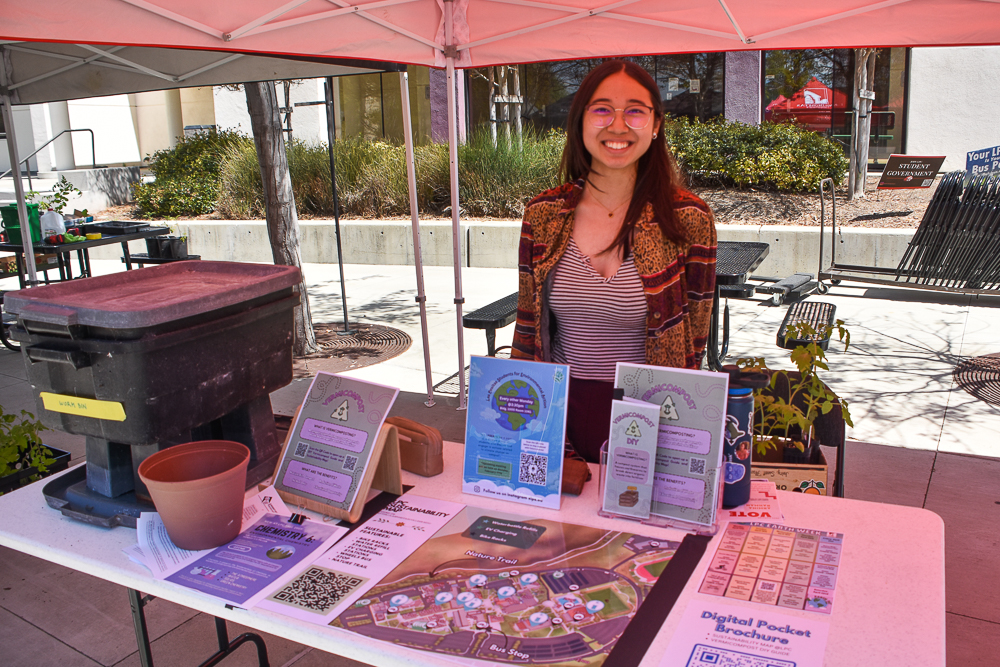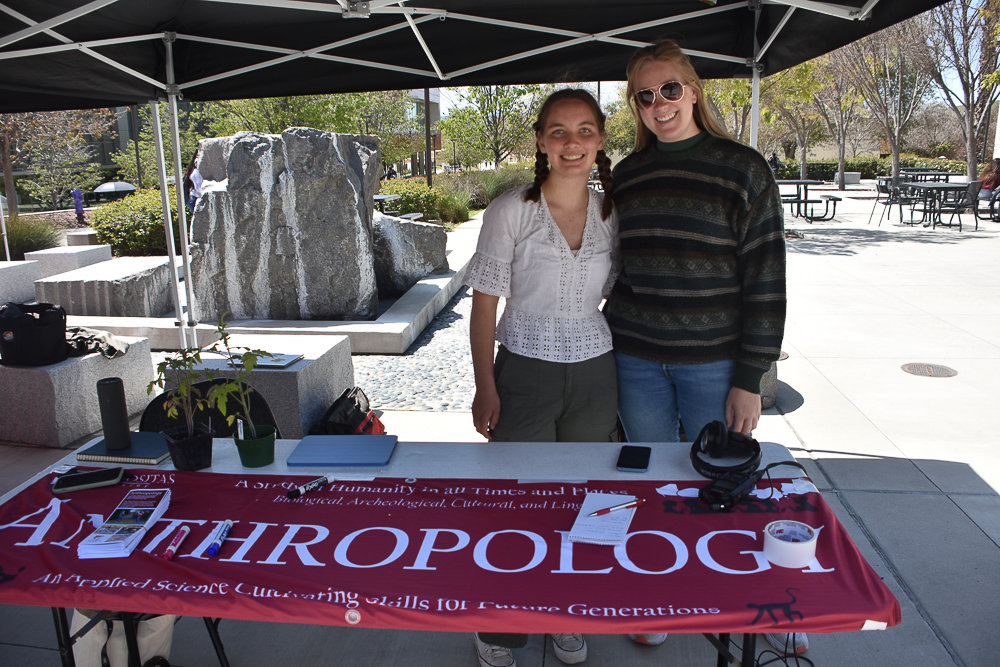To reduce your waste, be mindful of what you purchase and make sure you recycle and compost was a popular position at the Climate Solutions Fair.
“It’s very simple, easy to understand and easy to implement in your lifestyle,” Julian Rasak, a student at LPC, said about trying to achieve zero waste.
Learning about solutions to the climate crisis was the theme of the Las Positas Climate Solutions Fair held on the quad on April 19. LPC Climate Action Coordinator Kaitlyn Dickinson organized the fair as part of a week-long effort to educate the campus on environmental issues. Various on and off-campus groups participated.
LPC clubs and departments included Horticulture Club, Las Positas Students for Environmental Action, Psychology Club and the Anthropology Club. Off-campus organizations includedGillig Bus Company and the Tri-Valley Air Quality and Climate Alliance. Two bike shops, Motorwrx and Superfly Wheels, displayed electric bikes and a non-profit bike organization, Bad Business Model Bikes, offered bike tune-ups and repairs.
Dickinson hosted a table on how to reduce your impact on the environment. One major way to reduce your impact is to reduce or eliminate plastic, Dickinson said. This includes using bar soap instead of body wash or other soaps in plastic containers and using reusable shopping bags for produce instead of plastic.

“Our goal right now is to have a solid climate action plan on campus that involves student participation,” said Destiny-Ciaro Yano of the Students for Environmental Action club. “A lot of our club objectives are split into our policy work, and the other half is more of volunteering with other clubs and organizations that focus on climate change.”

Yano said she reduced her environmental impact by taking the bus to school and sometimes to Target. The club also demonstrated home composting using worms.
The Anthropology Club asked people to discuss what they are doing for climate change. “We’re just asking people for their input on the effects of climate change, how educated they feel about climate change,” Emma Austin, (position) of the Anthropology Club, said. Club member Nina Nowicki added, “I just like seeing where people stand, how they feel about the environment and nature trying to focus on the positive.”
The Horticulture Department and club sold tomato plants grown in the Horticulture Center’s greenhouse and attracted many participants who purchased plants. “Plants help the environment by reducing carbon dioxide and producing oxygen.” Laura Cornett, the Horticulture and Viticulture Lab Technician and professor, explained.

The biggest impacts on air quality in the Tri-Valley are high heat days and the exhausts of diesel engines, primarily trucks, said Ann Brown of the Tri-Valley Air Quality Climate Alliance.
“We are teaching people about the health risks of those particulates,” Brown said. “We encourage people to have an app on their phone and check the air quality and to modify their activities on poor air quality days.”
Two companies, Motorwrx and Superfly Wheels displayed electric bikes and both allowed students to try the bikes. After trying one of the bikes, Rasak said, “it is really fun. I just haven’t ridden a bike in a while so it kind of scared me. I think it is a good idea for people who tend to bike often and longer distances.”
Both bike shops and Rasak thought an electric bike could help with the hills near campus and perhaps encourage more students to ride bicycles to campus.
Billy Bradford runs Bad Business Model Bikes, which is a non-profit that restores donated bikes and gives them to those who cannot afford it. Bradford does this all by himself. He offered free tune-ups to students’ bikes at the fair, but no one took advantage of his offer.
Gillig Bus Company also displayed an electric bus in the quad, showing off the potential for Las Positas to switch to electric public transportation.
The fair ended with the Horticulture Department and club planting two flowering crabapple trees in front of the library.
Alan Lewis is a staff writer for Express. Follow him @Gibran580MSCM.




